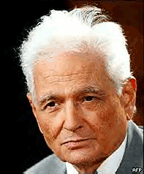I hesitate to write about something I have studied and thought about for over thirty years, yet have not mastered. I feel lucid this morning even if it is an illusion. I will plunge in.
Godel's incompleteness theorems have been interpreted many ways. Godel's Platonism most likely motivated him in the development of his proofs. Godel's assessment of their import could be wrong in some respects.
Let's say something like the Lakoff and Nunez project for constructing mathematics is true. That is, the mind possesses a stock of basic mathematical concepts and primary metaphors. These concepts and metaphors derive from our sensori-motor systems, the mental systems we use to negotiate everyday reality.
From this primary stock of metaphors, the mind creates increasingly complex mathematical metaphors. Our mathematical knowledge continues to grow, for it can only be limited by our imaginations and the mental capacities from which imagination derives. This mathematical knowledge spreads throughout the culture.
Our notions of mathematical logic are no different in this regard. Those notions are metaphors. What are the implications of the incompleteness theorems if something like the Lakoff and Nunez project turns out to be true?
All of the mathematical logic concepts, formal mathematical languages, recursive relations, models of arithmetic are metaphors too. The incompleteness theorems say, "here is the result of using the inferential systems created by the metaphors for those concepts.
The incompleteness theorems might strike one as odd or strange, but they may be no deterrent to proving mathematical truths. The idea that mathematics is metaphorical and grounded in our common sensori-motor systems and experience is foundational. The only deterrents to proving mathematical theorems are our imaginations and that our thinking is embodied, dependent on how we have evolved to negotiate the world.
I sometimes think of it as validating Kant's intuitions about the knowability of phenomena and noumena. The difference is that Kant arrived at his position via a priori thinking about mind, whereas, the creative and imaginative foundational approach is based on scientific study into how we think.
What does it mean for the consistency and independence of the parallel postulate and the continuum hypothesis? It is what one would expect given where mathematics comes from. We imagine our way into the situation.
Why does mathematics work so well when applied by scientists? Mathematics arises from our sensori-motor systems. It would be odd if there was no fit between how we experience the world and how we use mathematics to explain the world since, at the root or foundation, mathematics is part of our sensori-motor systems.
I have felt compelled to say these things in a public forum for several years. I hope I arrive at a sort of catharsis from doing so. I suppose it is one of the virtues of Blogland that I can do it.























